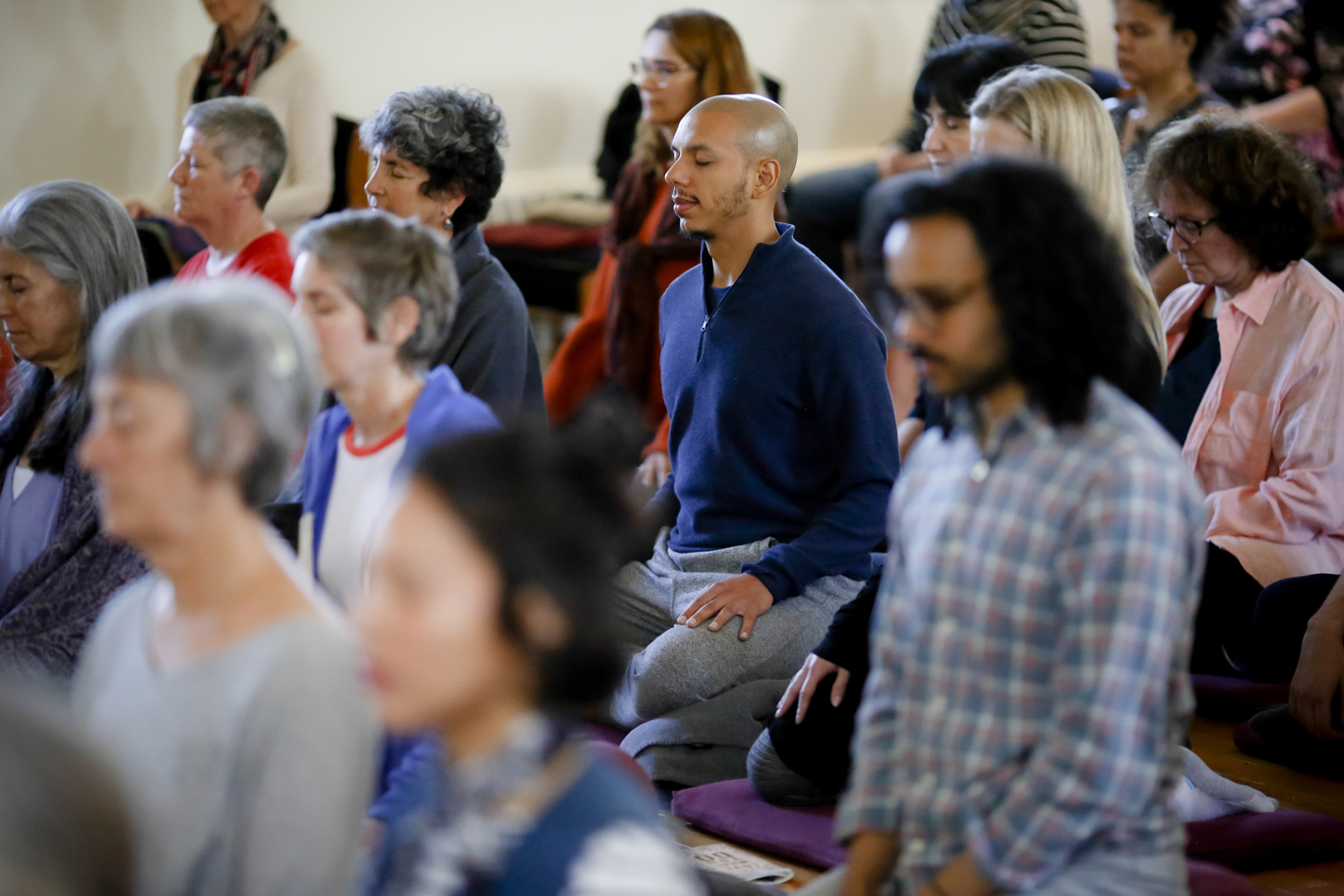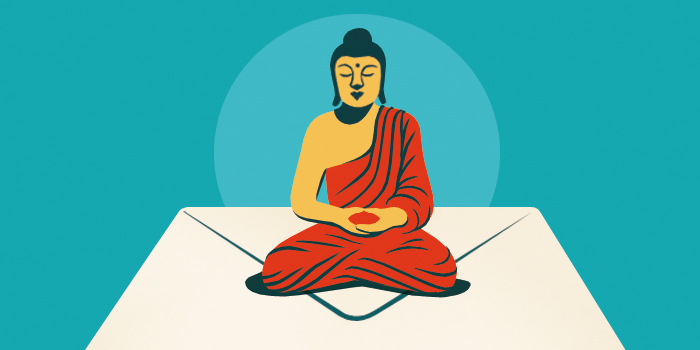What is a Buddhist retreat?

Meditators take part in a group Buddhist retreat at the Insight Meditation Society in Barre, Massachusetts, one of the first retreat centers in America. | Insight Meditation Society (IMS) / Stephanie Zollshan
A Buddhist retreat is a period of reflection in which practitioners immerse themselves in study and practice at a temple, dharma center, dedicated retreat center—or even a hermitage or cave. During this time, retreatants can focus on their practice free from the distractions and responsibilities of everyday life. Retreats take many forms, and may vary in length from one day to many years and in size from solo endeavors to large group undertakings, but all are intended to deepen the participants’ spiritual practice.
Going on retreat has been part of Buddhism since the Buddha instituted an annual three-month summer “rains retreat” to limit damage his wandering disciples did to farmer’s crops during the monsoon. Many of the Buddha’s discourses were given during these retreats. Today, both monastics and laypeople go on retreat in all seasons.
Meditation retreats tend to be intensive, particularly in the West. Schedules are generally highly structured, with long periods each day spent in the meditation hall. Some retreats require participants to keep silence, as practicing together in silence supports meditation practice and results in a remarkable level of intimacy. The retreat schedule provides a safe container to support a transformative experience for both individuals and the group. Intensive retreats are challenging to body and mind, so it’s often recommended that new students gain experience with shorter retreats of a weekend or so before committing to a longer retreat.
Along with periods of meditation practice, most meditation retreats also offer daily talks by the retreat leader or a senior teacher, as well as individual guidance. In some retreats participants are given work assignments―cooking, cleaning, gardening―that are considered an integral part of practice.
Buddhism also has a tradition of solitary retreats as a way to focus the mind and deepen one’s practice. Solo retreatants are responsible for their own schedules and generally have no direct contact with other people. This can be enormously challenging, so it’s recommended that a first solo retreat be limited to a day or two.
Not all Buddhist retreats center on meditation. The more devotional schools, such as Pure Land and Nichiren, hold retreats in which the focus is on liturgy practice, sutra study, and chanting. And many centers in all Buddhist schools hold less intensive “beginner” retreats that provide basic instruction: they are a great way to start on the Buddhist path.

Tricycle is more than a magazine
Gain access to the best in sprititual film, our growing collection of e-books, and monthly talks, plus our 25-year archive
Subscribe now